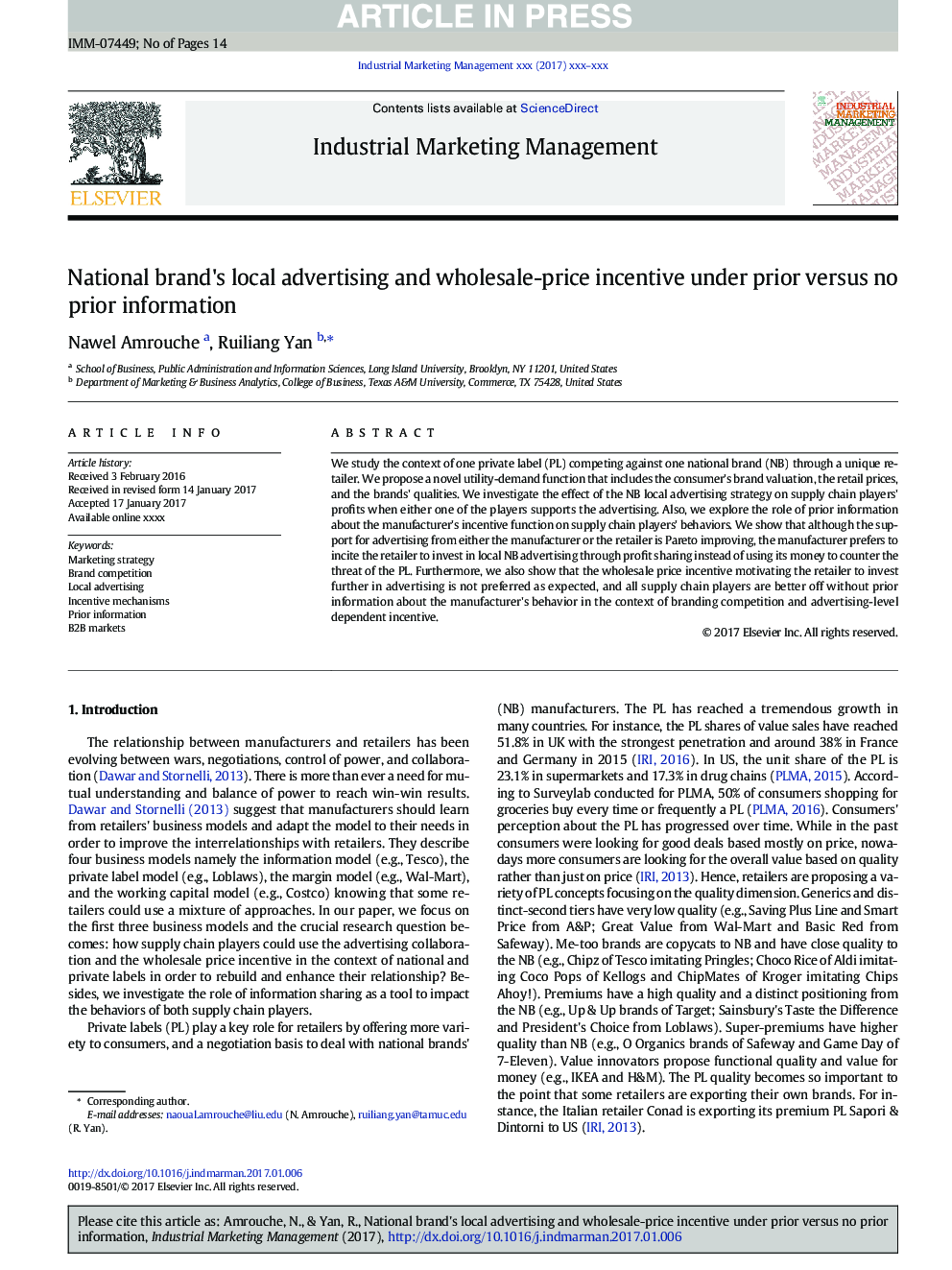| Article ID | Journal | Published Year | Pages | File Type |
|---|---|---|---|---|
| 5111075 | Industrial Marketing Management | 2017 | 14 Pages |
Abstract
We study the context of one private label (PL) competing against one national brand (NB) through a unique retailer. We propose a novel utility-demand function that includes the consumer's brand valuation, the retail prices, and the brands' qualities. We investigate the effect of the NB local advertising strategy on supply chain players' profits when either one of the players supports the advertising. Also, we explore the role of prior information about the manufacturer's incentive function on supply chain players' behaviors. We show that although the support for advertising from either the manufacturer or the retailer is Pareto improving, the manufacturer prefers to incite the retailer to invest in local NB advertising through profit sharing instead of using its money to counter the threat of the PL. Furthermore, we also show that the wholesale price incentive motivating the retailer to invest further in advertising is not preferred as expected, and all supply chain players are better off without prior information about the manufacturer's behavior in the context of branding competition and advertising-level dependent incentive.
Related Topics
Social Sciences and Humanities
Business, Management and Accounting
Marketing
Authors
Nawel Amrouche, Ruiliang Yan,
